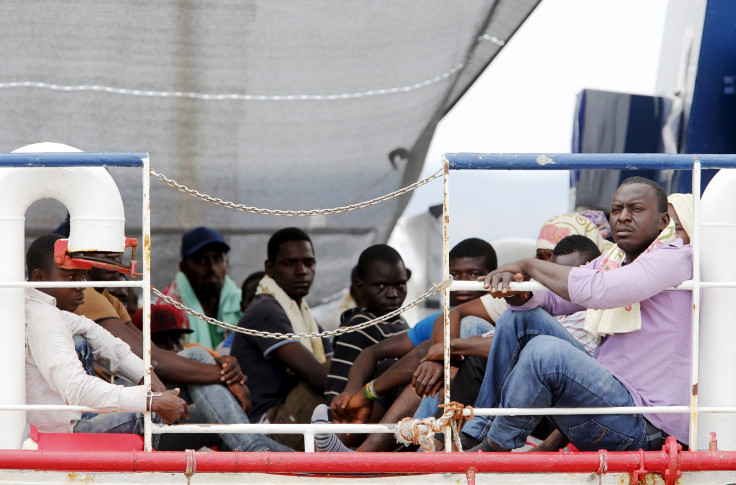EU migrant crisis: Italy prepares ex-prisons to accommodate 20,000 new arrivals

Italy is readying disused jails and barracks to accommodate the ever-growing number of migrants arriving on its shores, with the government awaiting about 20,000 new arrivals before the end of next month.
The interior ministry said the emergency measures are being laid out as the country's overflowing reception centres are facing unprecedented pressure and human smugglers are expected to make a final push before autumn begins.
"In summer waters are calm, so they tend to empty their facilities," a ministry official told IBTimes UK, adding that reception operations "are already under absolute strain".
Some 114,046 asylum seekers have arrived in Italy since the beginning of the year, including 3,000 who were rescued from the Mediterranean yesterday (26 August). Currently about 93,000 are accommodated in the country as many move to other EU nations.
The government has been working to redistribute them across the peninsula, often meeting a vociferous resistance from local authorities.
The official, who preferred to remain anonymous as he was not authorised to talk to the press, said former prisons and other buildings directly controlled by the government, will be renovated and reconfigured to welcome refugees.
"We are not going to put refugees in prison," he said. "The centres will respect humanitarian standards."
The extraordinary measure should suffice to receive the last wave of summer migrants but the government's main goal remains convincing its European allies to accept a comprehensive refugee redistribution plan.
From the ministry they made it known they were quite "happy" about Germany's recent change in policy, that saw the government of Chancellor Angela Merkel dropping controversial EU rules stipulating migrants apply for asylum in the first EU member state they enter.
The overhaul means refugees who arrive in Germany via another EU state will not face deportation back to their original starting point.
Proposals for a concerted response to the migrant influx are being discussed in Vienna, also with non-EU Balkan countries like Macedonia and Serbia that have witnessed an increasing number of migrants passing through from Greece towards central and northern Europe.
Earlier this month, the European border agency, Frontex, said the number of migrants detected at EU's borders in July more than tripled to 107,500 compared to the same month of last year bringing total arrivals since January to nearly 340,000.
Speaking at Western Balkans conference, EU Enlargement Commissioner Johannes Hahn said the number was only going to grow.
"There are 20 million refugees waiting at the doorstep of Europe," Hahn said. "Ten to 12 million in Syria, 5 million Palestinians 2 million Ukrainians and about 1 million in southern Caucasia."
"Never before in history have so many people fled their homes to escape war, violence and persecution," Hahn added. "And given the large number of unresolved conflicts in our neighborhood, the stream of refugees seeking protection in Europe will not abate in the foreseeable future, I am afraid."
At the summit Austria's foreign minister proposed a plan that included a centre to process asylum applications for the EU in the Balkans, a security upgrade on Europe's outer borders and refugee quotas for each member state.
© Copyright IBTimes 2025. All rights reserved.






















